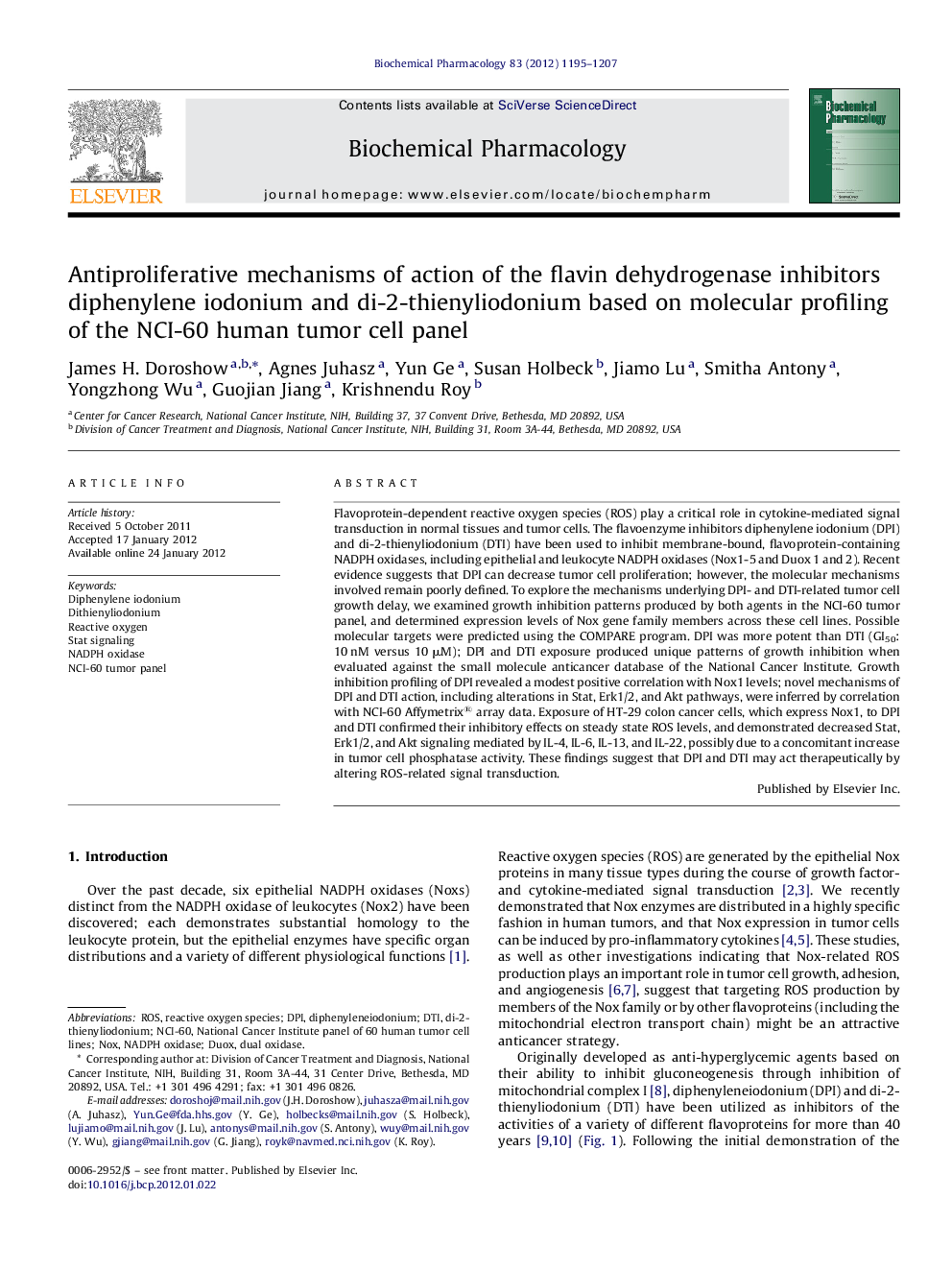| کد مقاله | کد نشریه | سال انتشار | مقاله انگلیسی | نسخه تمام متن |
|---|---|---|---|---|
| 2512866 | 1118380 | 2012 | 13 صفحه PDF | دانلود رایگان |

Flavoprotein-dependent reactive oxygen species (ROS) play a critical role in cytokine-mediated signal transduction in normal tissues and tumor cells. The flavoenzyme inhibitors diphenylene iodonium (DPI) and di-2-thienyliodonium (DTI) have been used to inhibit membrane-bound, flavoprotein-containing NADPH oxidases, including epithelial and leukocyte NADPH oxidases (Nox1-5 and Duox 1 and 2). Recent evidence suggests that DPI can decrease tumor cell proliferation; however, the molecular mechanisms involved remain poorly defined. To explore the mechanisms underlying DPI- and DTI-related tumor cell growth delay, we examined growth inhibition patterns produced by both agents in the NCI-60 tumor panel, and determined expression levels of Nox gene family members across these cell lines. Possible molecular targets were predicted using the COMPARE program. DPI was more potent than DTI (GI50: 10 nM versus 10 μM); DPI and DTI exposure produced unique patterns of growth inhibition when evaluated against the small molecule anticancer database of the National Cancer Institute. Growth inhibition profiling of DPI revealed a modest positive correlation with Nox1 levels; novel mechanisms of DPI and DTI action, including alterations in Stat, Erk1/2, and Akt pathways, were inferred by correlation with NCI-60 Affymetrix® array data. Exposure of HT-29 colon cancer cells, which express Nox1, to DPI and DTI confirmed their inhibitory effects on steady state ROS levels, and demonstrated decreased Stat, Erk1/2, and Akt signaling mediated by IL-4, IL-6, IL-13, and IL-22, possibly due to a concomitant increase in tumor cell phosphatase activity. These findings suggest that DPI and DTI may act therapeutically by altering ROS-related signal transduction.
Figure optionsDownload as PowerPoint slide
Journal: Biochemical Pharmacology - Volume 83, Issue 9, 1 May 2012, Pages 1195–1207